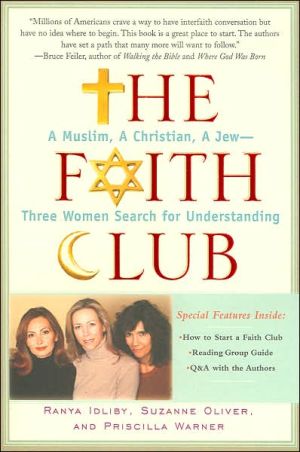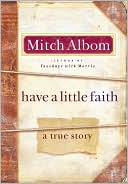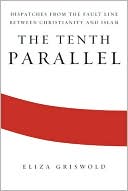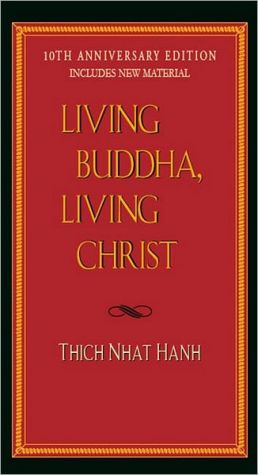The Faith Club: A Muslim, a Christian, a Jew--Three Women Search for Understanding
A groundbreaking book about Americans searching for faith and mutual respect, The Faith Club weaves the story of three women, their three religions, and their urgent quest to understand one another.\ When an American Muslim woman befriends two other mothers, one Jewish and one Christian, they decide to educate their children about their respective religions. None of them guessed their regular meetings would provide life-changing answers and form bonds that would forever alter their struggles...
Search in google:
A groundbreaking book about Americans searching for faith and mutual respect, The Faith Club weaves the story of three women, their three religions, and their urgent quest to understand one another. After September 11, Ranya Idliby, an American Muslim of Palestinian descent, faced constant questions about Islam, God, and death from her children, the only Muslims in their classrooms. Inspired by a story about Muhammad, Ranya reached out to two other mothers to write an interfaith children's book that would highlight the connections between Judaism, Christianity, and Islam. After just a few meetings, however, the women realized that they themselves needed an honest and open environment where they could admit -- and discuss -- their concerns, stereotypes, and misunderstandings. After hours of soul-searching about the issues that divided them, Ranya, Suzanne, and Priscilla grew close enough to discover and explore what united them. A memoir of spiritual reflections in three voices, The Faith Club has spawned interfaith discussion groups in churches, temples, mosques, and other community settings. It will make you feel as if you are eavesdropping on the authors' private thoughts, provocative discussions, and often-controversial opinions and conclusions. As the authors reveal their deepest beliefs, you watch the blossoming of a profound interfaith friendship and the birth of a new way of relating to others. And this new edition provides all the materials you need for forming your own Faith Club, including sections in Hebrew and Arabic. Pioneering, timely, deeply thoughtful, and full of hope, The Faith Club's caring message will resonate with people of all faiths. The Washington Post - Naomi Harris Rosenblatt The dialogue among the three friends comes across as genuine and thoughtful. They try valiantly to be frank with one another, which becomes easier as they learn to trust one another's motives and to respect each other's integrity…The conversations recorded in this book engage our attention as the women search out spiritual values common to all the three faiths and learn more about their own in the process.
Preface\ Meet the Faith Club. We're three mothers from three faiths — Islam, Christianity, and Judaism — who got together to write a picture book for our children that would highlight the connections between our religions. But no sooner had we started talking about our beliefs and how to explain them to our children than our differences led to misunderstandings. Our project nearly fell apart.\ We realized that before we could talk about what united us we had to confront what divided us in matters of faith, God, and religion. We had to reveal our own worst fears, prejudices, and stereotypes.\ So we made a commitment to meet regularly. We talked in our living rooms over cups of jasmine tea and bars of dark chocolate. No question was deemed inappropriate, no matter how rude or politically incorrect. We taped our conversations and kept journals as we discussed everything from jihad to Jesus, heaven to holy texts. Somewhere along the way, our moments of conflict, frustration, and anger gave way to new understanding and great respect.\ Now we invite you into our Faith Club to eavesdrop on our conversations. Come into our living rooms and share our life-altering experience. Perhaps when you're finished, you will want to have a faith club of your own.\ Copyright © 2006 by Ranya Idliby, Suzanne Oliver, and Priscilla Warner
Preface 9In the Beginning 11A Muslim, a Christian, and a Jew Walk into a Raom 22The Abrahamic Family Feud 51The Crucifixion Crisis 68Stop Stereotyping Me! 97Could You Convert? 141Oh, Where Are You, God? 167Ranya's Madrassah 188The Promised Land 210Prayer 248Rituals 269Intimations of Mortality 305Conversations with a Priest, an Imam, and a Rabbi 337A Day of Atonement 368Happy Holidays 406Facing Our Communities 417Awakenings 432Faltering Faith 458From Here to Eternity 475How to Start a Faith Club 493More Faith Club Questions 501Bibliography 511Acknowledgments 517
\ From Barnes & NobleAt first, it seemed like a good idea. In the wake of September 11, 2001, American Muslim Ranya Idliby contacted a Christian woman (Suzanne Oliver) and a Jewish woman (Priscilla Warner), proposing that the three of them write a children's book on the commonalities of these major religious traditions. Almost from the start, their "faith club" meetings devolved into wrangling; as one reviewer put it, "more Fight Club than book club." The three women argued with each other and also with themselves; even faith itself was brought into question. Through sheer stubbornness, the women continued their sessions, candidly tackling their own and each other's stereotypes, misconceptions, and deep beliefs. The Faith Club stands as a monument to their persistence, a testament to their faiths, and evidence of the difficulties that lay ahead.\ \ \ \ \ Naomi Harris RosenblattThe dialogue among the three friends comes across as genuine and thoughtful. They try valiantly to be frank with one another, which becomes easier as they learn to trust one another's motives and to respect each other's integrity…The conversations recorded in this book engage our attention as the women search out spiritual values common to all the three faiths and learn more about their own in the process.\ —The Washington Post\ \ \ Publishers WeeklyIn the wake of 9/11, Idliby, an American Muslim of Palestinian descent, sought out fellow mothers of the Jewish and Christian faiths to write a children's book on the commonalities among their respective traditions. In their first meeting, however, the women realized they would have to address their differences first. Oliver, an Episcopalian who was raised Catholic, irked Warner, a Jewish woman and children's author, with her description of the Crucifixion story, which sounded too much like "Jews killed Jesus" for Warner's taste. Idliby's efforts to join in on the usual "Judeo-Christian" debate tap into a sense of alienation she already feels in the larger Muslim community, where she is unable to find a progressive mosque that reflects her non-veil-wearing, spiritual Islam. The ladies come to call their group a "faith club" and, over time, midwife each other into stronger belief in their own respective religions. More Fight Club than book club, the coauthors pull no punches; their outstanding honesty makes for a page-turning read, rare for a religion nonfiction book. From Idliby's graphic defense of the Palestinian cause, Oliver's vacillations between faith and doubt, and Warner's struggles to acknowledge God's existence, almost every taboo topic is explored on this engaging spiritual ride. (Oct. 3) Copyright 2006 Reed Business Information.\ \ \ \ \ Library JournalIn writing a children's book highlighting the commonalities among the Abrahamic religions, Idliby, an American Muslim of Palestinian descent, sought Christian and Jewish collaborators. She was joined by Episcopalian-turned-Catholic Suzanne Oliver and Jewish children's book writer Warner, who both came to realize they needed to deal with their own questions, stereotypes, and concerns before starting the book. After several meetings, the trio's relationship and project seemed in jeopardy, but they painstakingly worked through their differences, accompanying one another at significant times to each of their places of worship, reading one another's Scripture, and supporting one another's doubts and fears. In the process, the women developed a strong bond that strengthened the way each practiced her own religion and moved them all toward deeper commitment to interfaith dialog, to justice, and to one another. This book, which concludes with suggestions to readers for forming their own Faith Club and includes sample questions for thought, is a documentation of Idliby, Oliver, and Warner's discussions, debates, and reflections. The world needs this book or others very similar! Highly recommended for all libraries.-Carolyn M. Craft, formerly with Longwood Univ., Farmville, VA Copyright 2006 Reed Business Information.\ \ \ \ \ Kirkus ReviewsThree mothers' engaging account of their interfaith dialogue. At first glance, the authors don't seem to have much in common. Idliby is a Muslim of Palestinian descent; Warner is a Reform Jew; Oliver grew up Catholic but was drawn to the more liberal Episcopal Church as an adult. Beneath those differences lie some important similarities: All three are mothers who want to teach their children religious tolerance, and each places great stock in her religious identity. In order to learn about the religious traditions of their neighbors, the authors came together to form a "faith club," meeting regularly to discuss prayer and ritual, their beliefs about God and the relationship between spirituality and social justice. They never shy away from potentially explosive topics, such as the way that Christian descriptions of Jesus' crucifixion have been used to provoke anti-Jewish violence, or the question of whether people can criticize Israeli policy without being accused of anti-Semitism. Over time, the women's religious commitments evolved: Idliby, who had felt spiritually homeless, found a community of like-minded progressive American Muslims; Oliver began to question some of her commitments to classic Christian doctrine; and Warner became more comfortable praying to and talking about God. The three charming narrators transform potentially dry theological discourses into personal, intimate heart-to-hearts. For readers who wish they could pull up a chair and join Idliby, Oliver and Warner in their chats, the concluding chapter explains how to form your own faith club. The only weakness here is that all three authors represent decidedly liberal expressions of their religions. The conversationswould have been even more interesting, albeit considerably more fraught, had they included an evangelical Christian or an Orthodox Jew or a Muslim woman who wears hijab. An invitation to discussion that's hard to turn down-and a natural for book groups.\ \







